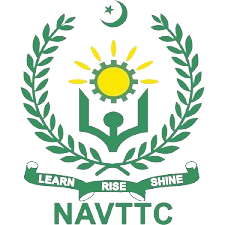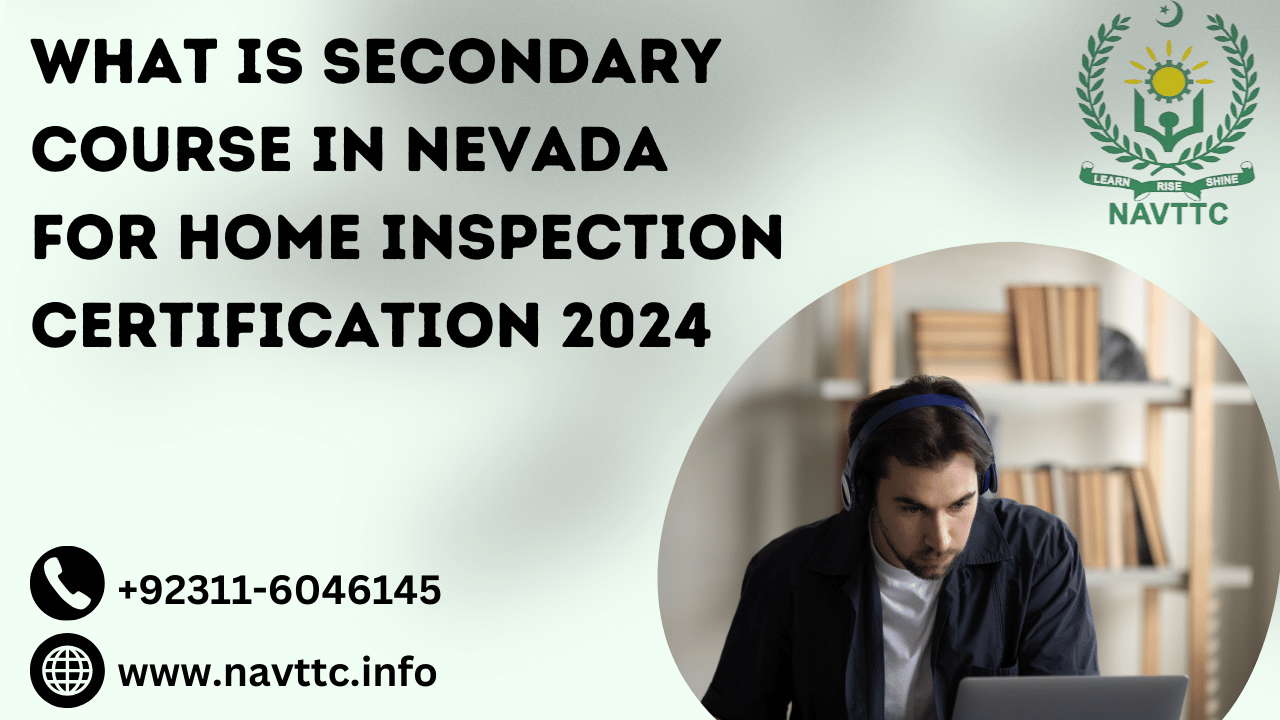What is Secondary Course in Nevada for Home Inspection Certification 2024? In Nevada, home inspectors are required to meet specific educational and licensing requirements to ensure they are prepared to assess properties safely and accurately. For people who want to obtain comprehensive home inspection certification, secondary courses are just as important as primary certification courses. Inspectors can excel in a variety of house inspection areas, from safety and structural integrity to specialty inspections, thanks to these additional courses that improve their knowledge and practical skills.
Also Read:
- LHV Courses Admission 2024 – NAVTTC Courses
- Online Homeopathy Courses in Pakistan – PHMC Best Homeopathic Institute
- JDC Free IT City Registration Form 2024 – Centers Across Pakistan
- IBM Data Analyst Course 2024 With Free Certificate – NAVTTC
- NAVTTC Free Courses List 2024 Online Apply – Complete Procedure For Learning
What is Secondary Course in Nevada for Home Inspection Certification 2024?
Secondary courses for home inspection certification in Nevada are advanced or supplementary courses that build on the foundational skills gained in primary certification courses. Secondary courses delve further into specialized areas, while primary courses concentrate on the fundamentals of home inspection, including an overview of plumbing, electrical, and structural systems which is required for all these courses. These can include classes on structural integrity, HVAC systems, safety procedures, ethics, and Nevada-specific laws so all the candidates are highly recommended to study here in 2024.
Secondary courses are often mandatory for licensing but can also be taken voluntarily to broaden an inspector’s skills and increase their marketability in Nevada’s real estate market.
Why Secondary Course in Nevada for Home Inspection Certification 2024?
Secondary courses equip inspectors with the additional expertise necessary to assess a property’s condition thoroughly.Since home inspectors offer crucial information that affects investments and property purchases, the Nevada home inspection sector is regulated to guarantee high standards of practice.. By completing secondary courses, inspectors gain:
- Enhanced Knowledge: Secondary courses cover complex systems in greater detail, giving inspectors a more comprehensive understanding of property components.
- Higher Standards of Safety and Compliance: Understanding Nevada’s specific safety codes and regulations ensures that inspectors comply with state laws.
- Increased Competitiveness: Secondary certifications can distinguish inspectors in a competitive market, often leading to higher demand and earning potential.
- Better Client Service: Inspectors that possess specific knowledge are able to offer clients more accurate, perceptive assessments and recommendations.
Key Secondary Courses for Home Inspection in Nevada
1. Advanced Electrical Systems
This course covers the inspection of complex electrical systems, teaching inspectors to identify issues in wiring, circuit breakers, and panels beyond the basics. Topics may include:
- Detailed study of residential and commercial electrical systems
- Inspection techniques for ensuring electrical safety and compliance
- Identifying issues with grounding, wiring, and potential fire hazards
Advanced electrical system knowledge is crucial in Nevada, especially in older homes where electrical systems may not meet current standards.
2. HVAC Systems Inspection
HVAC systems are integral to Nevada homes, given the state’s extreme temperatures. This course teaches inspectors to evaluate heating, ventilation, and air conditioning systems for functionality and efficiency. Topics include:
- Operation and components of HVAC systems
- Common issues, such as leaks, poor air circulation, and system inefficiency
- Energy efficiency standards and guidance on client recommendations
Proficiency in HVAC inspection ensures inspectors can confidently advise clients on the longevity and safety of these systems, which is a high priority in Nevada.
3. Roofing Systems Inspection
Roofing is one of the most critical structural elements in any home, and inspectors must be able to identify potential issues accurately. This course covers:
- Common roof types and materials in Nevada, such as tile, asphalt, and metal roofing
- Identifying roof damage, leaks, and structural issues
- Best practices for assessing gutters, flashing, and drainage systems
With frequent exposure to harsh sunlight and occasional severe weather, Nevada roofs often require careful inspection, making this a valuable course for aspiring home inspectors.
4. Foundation and Structural Inspection
Foundation issues can lead to severe property damage if left unaddressed. This course provides inspectors with the skills to evaluate a property’s structural integrity, covering:
- Signs of foundation movement, cracking, and water damage
- Inspection of load-bearing walls, floors, and ceilings
- Techniques for identifying termite damage and other structural issues
Understanding foundation and structural issues is essential in Nevada, where soil conditions can affect stability, making this course beneficial for comprehensive home inspections.
5. Plumbing Systems Inspection
An essential course for identifying potential issues within plumbing systems, this secondary course teaches inspectors to recognize signs of wear, leaks, and inefficiencies in plumbing systems, including:
- Identification of piping materials and common plumbing issues
- Inspection of water heaters, toilets, sinks, and drainage systems
- Techniques for assessing water pressure and waste disposal systems
Water conservation is a priority in Nevada, so inspectors knowledgeable in plumbing systems can advise clients on efficiency and potential water-saving improvements.
6. Building Codes and Legal Aspects of Home Inspection
To provide accurate and compliant reports, inspectors need to understand Nevada’s building codes and the legal responsibilities of a home inspector. This course covers:
- State and local building codes applicable to inspections
- Liability, ethics, and confidentiality requirements
- Documentation standards and writing legally compliant inspection reports
This course ensures inspectors are aware of their professional and legal responsibilities, helping to protect both their clients and their own business.
7. Environmental Hazard Identification
This course trains inspectors in identifying environmental hazards, such as mold, asbestos, radon, and lead-based paint, which can affect a property’s safety and value. Key topics include:
- Health risks associated with environmental hazards
- Best practices for detecting and reporting hazardous materials
- Recommended testing procedures and when to refer specialists
Understanding how to identify and report environmental hazards is vital, especially in older Nevada homes where these issues may be more prevalent.
How to Enroll in Secondary Course in Nevada for Home Inspection Certification 2024?
Secondary courses are offered by many organizations, including vocational schools, community colleges, and professional training providers. The Nevada Real Estate Division (NRED) maintains a list of accredited providers for certification and continuing education. Here are steps to enroll:
- Research Accredited Training Providers: Review the NRED-approved providers and find one that offers the specific secondary courses you need.
- Check Course Requirements and Availability: Many courses are available online or in person, so choose a format that works best for you.
- Enroll and Complete Coursework: Follow through with the course material, assignments, and exams to gain certification.
- Keep Up with Continuing Education: Nevada requires home inspectors to complete ongoing education to keep their licenses current, so stay updated on any new secondary courses or certifications.
Conclusion
Nevada-Secondary courses required to be a certified home inspector. In addition to the basic training, such more detailed courses tend to supply inspectors with specialized knowledge and skills that can be used in thorough, accurate property inspections. You will need additional classes to learn how to inspect HVAC, electrical systems, and other potential hazards during property checks in Nevada as well as legal responsibilities that must be followed while estimating environmental dangers.
Taking this course will make any inspector more knowledgeable, in line with local regulations, and able to offer the best customer service that leads them towards their industry reputation.

